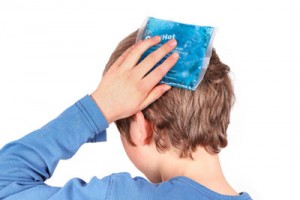Data findings highlight common misconceptions about concussion
Posted: 24 August 2015 |
New data from Abbott’s Concussion IQ Survey reveals that many adults lack basic understanding about concussion signs, symptoms, risk and treatment…


Surprising new data from Abbott‘s Concussion IQ Survey reveals that a large number of adults lack basic understanding about concussion signs and symptoms, risk and treatment.


It is estimated that up to 50% of all mild brain injuries go unreported. Knowing about concussion and getting diagnosed early is key to getting the right treatment for a person to recover and better their chances to return safely to activities they most enjoy.
The survey, conducted by KRC Research in partnership with Abbott, the global healthcare company, polled more than 1,000 adults in the US (over the age of 18) and aimed to understand general awareness and perceptions of concussion. The key findings include:
Adults are five times more likely to seek medical attention for a broken bone compared to if they thought they had a concussion.
Six in 10 adults don’t understand that treating a concussion includes mental rest, which may mean limiting time spent on cell phones, watching TV and other activities that could worsen symptoms.
More than 80% of adults believe a person should not sleep and be woken up periodically after being diagnosed with a concussion.
64% of adults say they did not seek medical attention the last time they hit their head very hard, but 9 in 10 people would seek medical attention for a child.
Almost 70% of parents would not send their child to school the day after they hit their head very hard, but over half say they would still go to work or school themselves after a hard hit to the head.
Quick diagnosis of concussion is critical
“Based on the survey results, it is clear there is a need to build more awareness and understanding about concussion,” said Beth McQuiston, board-certified neurologist and medical director, Diagnostics, Abbott. “Parents, athletes, coaches and beyond need to be able to recognise signs of concussion to help people seek proper care and rest.”
Concussions, also called mild traumatic brain injuries, occur when an external force shakes or jostles the brain inside the skull. They can be invisible injuries, and many of the symptoms can be confused with other conditions such as dehydration or not getting enough sleep. Although they can vary, common signs of concussion can include dizziness, blurred vision, balance problems, nausea, vomiting, fatigue and increased anxiety or irritability.
A common misconception is that a person will become unconscious during a mild concussion, but in fact, most people do not lose consciousness. According to the survey, many adults also believe that a person should not sleep or should not be woken up during the night after a concussion. However, sleep and rest are usually recommended for those who have a brain injury.
“Quickly diagnosing a concussion is critical for doctors to recommend appropriate treatment and minimise further injury,” said Dr McQuiston. “However, you can’t treat what you don’t know.”
Abbott and US Department of Defence partner to develop concussion blood test
Currently, there is no fool-proof way to diagnose a mild brain injury, and while imaging such as CT scans can help, the majority of these scans can appear normal even when an injury has occurred. Because of this, many concussions go undiagnosed and untreated.
To address this issue, Abbott is partnering with the US Department of Defense with the goal of developing a blood test capable of evaluating potential concussions. Currently in development, the test will be designed to detect specific proteins in the blood associated with brain injury and will be used on Abbott’s i-STAT – a handheld, portable analyser that is used to perform a broad range of common blood tests.



